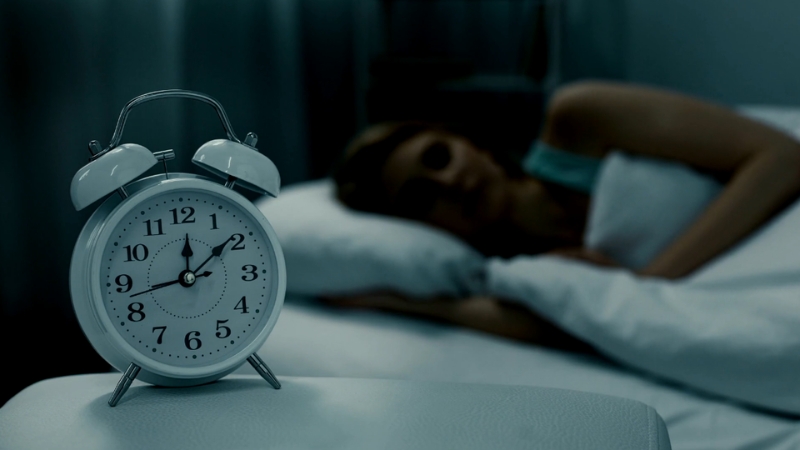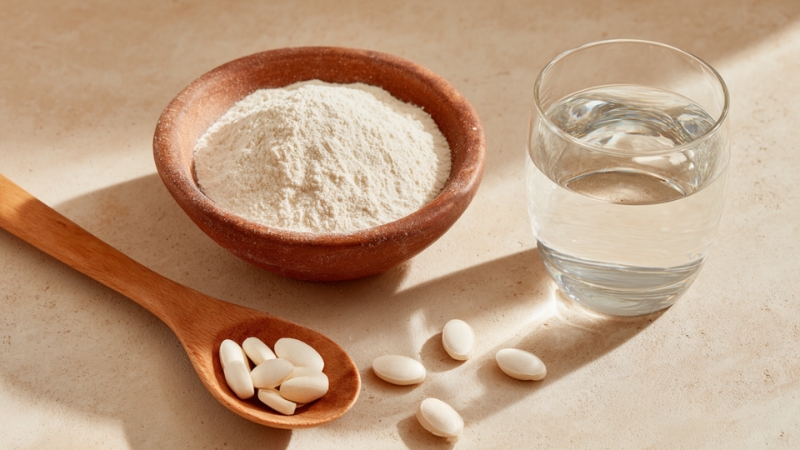
Share Post:
Deep sleep plays a critical role in muscle recovery, but how long does it take for your muscles to recharge while you’re asleep?
The short answer: Muscle recovery begins almost immediately once deep sleep (slow-wave sleep) starts, and the bulk of physical repair happens during the first two sleep cycles—roughly within the first 2 to 3 hours of a good night’s rest.
However, complete recovery from strenuous activity or strength training may require multiple nights of high-quality sleep, depending on intensity and training level.
Table of Contents
ToggleSleep Architecture: When Muscle Recovery Happens

Sleep occurs in cycles lasting about 90 minutes each, and the body cycles through different sleep stages multiple times per night. Most deep sleep occurs in the first half of the night.
| Sleep Cycle Stage | Duration (per cycle) | Main Function | Role in Muscle Recovery |
| Stage 1 (Light) | ~5–10 min | Transition into sleep | Minimal |
| Stage 2 | ~20 min | Body temp and heart rate drop | Prepares the body for deep sleep |
| Stage 3 (Deep) | 20–40 min (1st cycle) | Tissue growth and repair | Peak muscle recovery zone |
| REM | ~10–60 min (later) | Brain activity, dreaming | Minimal impact on muscle repair |
Stage 3 deep sleep typically starts 45–90 minutes after falling asleep, and it’s during the first 2–3 cycles (about 2–3 hours total) that you get the deepest, most restorative muscle recovery.
How Much Deep Sleep Do You Need for Muscle Recharge?

According to sleep researchers:
- Healthy adults need about 90 minutes to 2 hours of deep sleep per night to support optimal muscle healing, strength gains, and hormone balance.
- Athletes or individuals recovering from intense training may benefit from up to 2.5 hours of deep sleep for full muscular restoration.
| Physical Activity Level | Recommended Total Sleep | Deep Sleep Required |
| Sedentary adult | 7–8 hours | ~1.0–1.5 hours |
| Recreational exerciser | 7–9 hours | ~1.5–2.0 hours |
| Athlete/strength trainer | 8–10 hours | ~2.0–2.5 hours |
What Happens to Muscles During Deep Sleep?
When you finally drift into deep sleep, your muscles aren’t just resting—they’re actively recovering. This stage of sleep, also known as slow-wave sleep, is when the body prioritizes physical repair. The most important systems kick into gear to undo the strain of your workouts, daily movement, and stress.
One of the key changes is a surge in blood flow to the muscles. During deep sleep, your capillaries expand, allowing more oxygen and nutrients to reach muscle tissues. This increased circulation helps carry away waste products while delivering the raw materials your body needs to repair and rebuild.
Then comes the growth hormone release, which peaks about 90 minutes after you fall asleep. This hormone, secreted by the pituitary gland, plays a central role in muscle protein synthesis.
It repairs micro-tears in muscle fibers caused by exercise and promotes the development of new, stronger tissue. If you’re trying to gain strength or recover faster, this hormonal pulse is non-negotiable.
At the same time, your body ramps up cellular waste clearance through the glymphatic system—a kind of overnight clean-up crew. This system flushes out lactic acid and other byproducts of intense physical activity, reducing soreness and inflammation. Without this process, fatigue lingers and recovery slows down.
Cortisol, the body’s main stress hormone, naturally drops during deep sleep. That’s a good thing. Lower cortisol levels at night support anabolic processes (muscle-building) and suppress catabolic ones (muscle breakdown). This hormonal shift creates the perfect conditions for healing and strength restoration.
But here’s the catch: you only get these benefits if your sleep environment allows you to reach and sustain deep sleep. That’s why many recovery-focused individuals are turning to adaptive mattresses for healthier sleep.
These mattresses respond to your body’s position and pressure points in real time, reducing tossing, improving spinal alignment, and helping you stay in deep sleep longer, where true muscle repair happens.
Factors That Affect Muscle Recharge During Sleep
Not all sleep is equal. Your muscle recovery efficiency during deep sleep can be affected by:
| Factor | Effect on Muscle Recovery |
| Poor sleep quality | Less deep sleep → slower muscle repair |
| Alcohol or caffeine use | Suppresses deep sleep |
| Overtraining | Raises cortisol, delays recovery |
| Sleep disorders (e.g., apnea) | Interrupts deep sleep stages |
| Sleep environment (light, noise) | Reduces deep sleep time |
To maximize muscle recharging, you need consistent, uninterrupted deep sleep, not just longer sleep.
Can You Speed Up Muscle Recovery Through Better Sleep?
@jackfloood Sleep is by far the number 1 recovery tool😴🛠️ #health #sleep #foryou ♬ Stargazing (Slowed + Reverb) – Marcelo De Carvalho
Yes, absolutely. The quality of your sleep directly affects how well and how quickly your muscles repair and grow.
While you can’t control every aspect of sleep, you can create the ideal conditions for your body to spend more time in deep sleep, where most muscle recovery happens.
Here’s how to optimize your deep sleep for faster recovery:
-
- Stick to a consistent bedtime – Going to bed and waking up at the same time every day—even on weekends—helps regulate your internal clock and improves the likelihood of entering restorative sleep cycles.
- Avoid screens and bright lights at least 1 hour before bedtime – Blue light from phones, tablets, and TVs suppresses melatonin, the hormone responsible for sleep onset. Try switching to dim, warm lighting or reading a physical book.
- Keep your room cool (60–67°F or 15–19°C) – Cooler environments support lower core body temperature, which signals the body that it’s time to sleep and allows for deeper rest.
- Limit caffeine to early in the day – Caffeine has a half-life of about 5–6 hours. Even afternoon coffee can reduce deep sleep duration later at night.
- Eat protein-rich meals during the day—n, and right before bed – Your muscles need amino acids to repair, but heavy or late-night meals can disrupt sleep. Focus on daytime protein intake and lighter evening meals.
- Avoid intense workouts less than 2 hours before bedtime – Exercise is great for sleep quality in general, but training too close to bedtime can keep your heart rate and cortisol levels elevated, making it harder to wind down.
Final Takeaway
Muscle growth doesn’t happen in the gym—it happens when you’re asleep. Deep sleep is the body’s primary repair window, when growth hormone is released, blood flow increases to muscles, and recovery processes go into overdrive.
If you’re doing everything right with your workouts and nutrition but still feel sore, sluggish, or stuck, your sleep could be the missing piece.
Small changes, like adjusting your sleep schedule or upgrading your mattress to something more adaptive, can lead to measurable improvements in muscle recovery, strength gains, and overall well-being.
In short: Train hard, eat well, but don’t sleep on sleep. It’s your body’s most powerful and natural form of muscle therapy.
Related Posts:
- How Long Does It Take for Creatine to Leave Your…
- How Long Does It Take to Get Certified as a Fitness Coach?
- 4 Best Sleep Positions to Help Sore Muscles Recover Faster
- When Epsom Salt Baths Fail - Real Solutions for Deep…
- Why Does Your Elbow Hurt During Workouts? Causes & Solutions
- Sports Injuries That Take Years to Heal (and How to…













